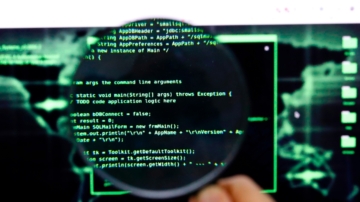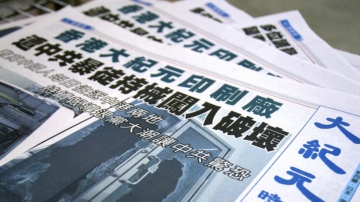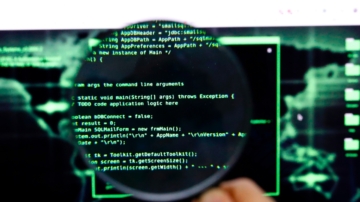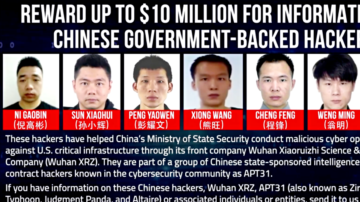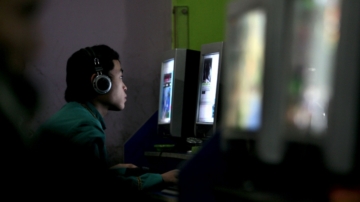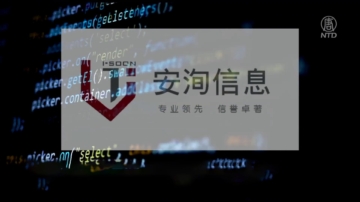【新唐人2012年10月4日讯】中国的网民正在对中共政权进行一场争夺话语权的“人民战争”。目前看来,面对千百万网民持续不断的、摧枯拉朽的攻击,中共显得束手无策。分析指出,渴望寻求真相的网民,挑战中共网路封锁,导致中共的“信息围堵大坝”崩塌。如何崩塌?下面一起去了解看看:
《美国之音》记者齐之丰观察当前的中国互联网,他分析指出,中国网民正在对中共政权,进行一场争夺话语权的“人民战争”。在众目睽睽之下,中国网民齐心协力或各自为战,对中共当权者万炮齐轰,持续不断的对中共政权发动强力攻击。
而面对千百万网民持续不断的摧枯拉朽的攻击,中共束手无策。目前,中共已经“陷入人民战争的汪洋大海之中”。对这个问题中共非常清楚,但却无能为力。
时事评论员林子旭表示,随着网路技术的持续快速发展,尤其是网路微博的出现,中共控制网路舆论越来越困难,“信息围堵大坝”即将崩塌,舆论像潮水一样涌出来。
时事评论员林子旭:“现在每一个微博用户,都可以成为一个信息中心,全中国几亿的网民可以在任何时刻、任何不同的地点,发出任何中共不喜欢的言论,而且,往往这些贬斥中共的言论,又会得到大众的认可,从而被快速的传播,从目前来看,中共对此可以说是束手无策。”
齐之丰观察,在今天的中国,提起任何一个话题,都可以成为网民攻击中共政权的一发炮弹,一个跳板,一个出气口。
与此同时,中共政权的应对选择十分有限。比如:1.雇佣大批所谓“五毛党”,以普通网民的身份,在互联网上为当局说话;2.责令互联网公司,雇用大批的人,删除政府所不喜欢的言论;3.政府也上网,力争网路话语权,引导网路舆论;4.利用禁忌词黑名单和搜索禁忌词黑名单,彻底封杀一个话题。
有关薄熙来事件的网民言论,可以说是中国网民针对中共政权展开人民战争的一个典型例子。几乎所有的网民言论,都是向中共合法性射出的利箭,扔出的手榴弹。”而“中共官方媒体试图也通过网际网路微网志引导舆论。但官媒的言论只是成为网民的笑柄,只是给网民攻击中共政权提供了更多的靶子和炮弹。
时事评论员司马泰:“因为中共的长期压制,使得中国人对寻求自由的欲望特别大,他们在网路上面有这么一个窗口,就会充分利用这一点,中国人就是因为这个破网软件,确实是打开来一扇窗户一样,就像一个人,他从来没看过海外的东西,他一旦他看到了,他就再也不愿意不看到了。”
据了解,中共1995年引入互联网,但为了阻止真实信息进入中国,逐年加大封锁境外网路的强度。1999年到2001年,中共当局耗费巨资建起“网路长城”。
美国国会2月18号发表的一份研究报告指出:帮助中国网民冲破网路封锁的破网软件,也帮助了其他极权专制国家的网民,而破网软件又以“无界浏览”和“自由门”最为有效。
林子旭:“这么多年来难以计数的真实信息,从这些独立媒体被传递到中国,成千上万的人,在翻墙看到真相之后觉醒了,现在这些人,都成为了在中国大陆内传递真实信息的关键力量,可以毫不夸张的讲,这些独立媒体以及翻墙软件,对于今天中国大陆的这种网路舆论环境的形成,起到了至关重要的作用。”
透过今年的薄王事件,大家可以清楚的看到,事件发生后,翻墙找真相的人暴增,同时,《新唐人电视》和《大纪元时报》对事件精准的分析和预测,也引起了西方媒体的注意。翻墙软件,也因此获得了国内外越来越多人的关注。
采访编辑/常春 后制/王明宇
Internet Blockade Broken in China
Chinese netizens are trapped behind a wall against the
Chinese communist regime for ‘freedom of speech’.
Facing millions of netizens’ continuous attacking,
the Chinese communist party (CCP) had no way out.
Analysts pointed out, netizens are longing for the truth,
and challenging the CCP’s internet blockade,
resulting in a breach of the blockade, but how?
Voice of America reporter Qi Zhifeng observed the current
internet in China, and pointed out that
netizens in China are waging war against the
Chinese Communist regime for ‘speech freedom’.
Under their watchful eyes, Chinese netizens worked
together or independently to continuously attack the Chinese Communist regime.
Facing the ongoing withering attack by millions of netizens,
the CCP are helpless.
At present, the Chinese Communist regime has been
"caught in the vast ocean of a people's war."
The CCP is very clear on this issue, but can do nothing.
The news commentator Lin Zixu said with the sustained
and rapid development of internet technology,
especially the emergence of microblogs,
it is becoming more and more difficult for the CCP to control online public opinions.
The ‘information dam’ will soon collapse,
and public opinion will gush out like open tides.
Political commentator Lin Zixu: “Now microblog users
can become an information center,
hundreds of millions of netizens in China can release
any information unfavorable to the CCP at any time and any location.
Often these remarks denigrating the CCP will get
public recognition and quickly spread.
At present, the CCP is helpless.”
Qi Zhifeng observed in today's China, any topic could
become the netizen bullet to attack the CCP regime, serve as a springboard, or act as an outlet.
Meanwhile, the CCP have very limited options in responses,
for example:
1> Hire a large number of ‘Fifty Cent Party’ spokespeople
to speak for the authorities online posing as ordinary netizens;
2> Order internet companies to employ more people
to remove remarks that the government does not like;
3> Government also strived online for the right of speech,
and guided internet public opinion;
4> Completely block a topic using word blacklists or
search taboo and word blacklists.
The author said, “Netizens remarks on the Bo Xilai event,
can be a typical example of the people's war by netizens in China,
against the Chinese Communist regime. Nearly all netizens’
remarks are arrows and grenades emitted towards the CCP.
But China's official media also tried to guide public opinion
through microblogs.
However, official media statements just become
the laughing stock of the netizens,
providing netizens with more targets and
shells to attack the CCP.”
Political commentator Sima Tai: “Because of
the long-term suppression of speech by the CCP,
the Chinese people have a great desire to seek freedom.
Now they have a tool online and thus will make full use of it.
The anti-blocking software indeed opens a window
for Chinese netizens.
Like a person who has never seen things on the outside,
once he sees it, he would never want to be blocked again.”
It is said that the CCP introduced the internet in 1995,
but in order to prevent real information entering into China,
the CCP gradually increased the strength of
its internet blockade.
From 1999 to 2001, the Communist authorities expended
a huge amount of money to set up "the Internet Great Wall".
A research report published by the U.S. Congress on
18th February pointed out that the anti- blockade software
helped Chinese netizens to break through the internet blockade,
as well as aiding other netizens in other totalitarian regimes.
Anti-blockade software UltraSurf and Freegate
have been found to be the most effective.
Lin Zixu: “Over a number of years, countless truth information
had been sent to China from these independent media.
Tens of thousands of people awoke and have seen the truth.
Now these people have become the key strength in China
for spreading the truth.
These independent media software played a key role in
forming such an internet public opinion environment in China.”
In Bo and Wang’s cases this year, we can clearly notice
the number netizens using anti-blockade software has increased significantly;
meanwhile, the precise analysis and forecast of events
in China by NTDTV and The Epoch Times has gained the attention of Western media.
Anti-blockade software have gained more and more
attention from people in China and overseas.
《美国之音》记者齐之丰观察当前的中国互联网,他分析指出,中国网民正在对中共政权,进行一场争夺话语权的“人民战争”。在众目睽睽之下,中国网民齐心协力或各自为战,对中共当权者万炮齐轰,持续不断的对中共政权发动强力攻击。
而面对千百万网民持续不断的摧枯拉朽的攻击,中共束手无策。目前,中共已经“陷入人民战争的汪洋大海之中”。对这个问题中共非常清楚,但却无能为力。
时事评论员林子旭表示,随着网路技术的持续快速发展,尤其是网路微博的出现,中共控制网路舆论越来越困难,“信息围堵大坝”即将崩塌,舆论像潮水一样涌出来。
时事评论员林子旭:“现在每一个微博用户,都可以成为一个信息中心,全中国几亿的网民可以在任何时刻、任何不同的地点,发出任何中共不喜欢的言论,而且,往往这些贬斥中共的言论,又会得到大众的认可,从而被快速的传播,从目前来看,中共对此可以说是束手无策。”
齐之丰观察,在今天的中国,提起任何一个话题,都可以成为网民攻击中共政权的一发炮弹,一个跳板,一个出气口。
与此同时,中共政权的应对选择十分有限。比如:1.雇佣大批所谓“五毛党”,以普通网民的身份,在互联网上为当局说话;2.责令互联网公司,雇用大批的人,删除政府所不喜欢的言论;3.政府也上网,力争网路话语权,引导网路舆论;4.利用禁忌词黑名单和搜索禁忌词黑名单,彻底封杀一个话题。
有关薄熙来事件的网民言论,可以说是中国网民针对中共政权展开人民战争的一个典型例子。几乎所有的网民言论,都是向中共合法性射出的利箭,扔出的手榴弹。”而“中共官方媒体试图也通过网际网路微网志引导舆论。但官媒的言论只是成为网民的笑柄,只是给网民攻击中共政权提供了更多的靶子和炮弹。
时事评论员司马泰:“因为中共的长期压制,使得中国人对寻求自由的欲望特别大,他们在网路上面有这么一个窗口,就会充分利用这一点,中国人就是因为这个破网软件,确实是打开来一扇窗户一样,就像一个人,他从来没看过海外的东西,他一旦他看到了,他就再也不愿意不看到了。”
据了解,中共1995年引入互联网,但为了阻止真实信息进入中国,逐年加大封锁境外网路的强度。1999年到2001年,中共当局耗费巨资建起“网路长城”。
美国国会2月18号发表的一份研究报告指出:帮助中国网民冲破网路封锁的破网软件,也帮助了其他极权专制国家的网民,而破网软件又以“无界浏览”和“自由门”最为有效。
林子旭:“这么多年来难以计数的真实信息,从这些独立媒体被传递到中国,成千上万的人,在翻墙看到真相之后觉醒了,现在这些人,都成为了在中国大陆内传递真实信息的关键力量,可以毫不夸张的讲,这些独立媒体以及翻墙软件,对于今天中国大陆的这种网路舆论环境的形成,起到了至关重要的作用。”
透过今年的薄王事件,大家可以清楚的看到,事件发生后,翻墙找真相的人暴增,同时,《新唐人电视》和《大纪元时报》对事件精准的分析和预测,也引起了西方媒体的注意。翻墙软件,也因此获得了国内外越来越多人的关注。
采访编辑/常春 后制/王明宇
Internet Blockade Broken in China
Chinese netizens are trapped behind a wall against the
Chinese communist regime for ‘freedom of speech’.
Facing millions of netizens’ continuous attacking,
the Chinese communist party (CCP) had no way out.
Analysts pointed out, netizens are longing for the truth,
and challenging the CCP’s internet blockade,
resulting in a breach of the blockade, but how?
Voice of America reporter Qi Zhifeng observed the current
internet in China, and pointed out that
netizens in China are waging war against the
Chinese Communist regime for ‘speech freedom’.
Under their watchful eyes, Chinese netizens worked
together or independently to continuously attack the Chinese Communist regime.
Facing the ongoing withering attack by millions of netizens,
the CCP are helpless.
At present, the Chinese Communist regime has been
"caught in the vast ocean of a people's war."
The CCP is very clear on this issue, but can do nothing.
The news commentator Lin Zixu said with the sustained
and rapid development of internet technology,
especially the emergence of microblogs,
it is becoming more and more difficult for the CCP to control online public opinions.
The ‘information dam’ will soon collapse,
and public opinion will gush out like open tides.
Political commentator Lin Zixu: “Now microblog users
can become an information center,
hundreds of millions of netizens in China can release
any information unfavorable to the CCP at any time and any location.
Often these remarks denigrating the CCP will get
public recognition and quickly spread.
At present, the CCP is helpless.”
Qi Zhifeng observed in today's China, any topic could
become the netizen bullet to attack the CCP regime, serve as a springboard, or act as an outlet.
Meanwhile, the CCP have very limited options in responses,
for example:
1> Hire a large number of ‘Fifty Cent Party’ spokespeople
to speak for the authorities online posing as ordinary netizens;
2> Order internet companies to employ more people
to remove remarks that the government does not like;
3> Government also strived online for the right of speech,
and guided internet public opinion;
4> Completely block a topic using word blacklists or
search taboo and word blacklists.
The author said, “Netizens remarks on the Bo Xilai event,
can be a typical example of the people's war by netizens in China,
against the Chinese Communist regime. Nearly all netizens’
remarks are arrows and grenades emitted towards the CCP.
But China's official media also tried to guide public opinion
through microblogs.
However, official media statements just become
the laughing stock of the netizens,
providing netizens with more targets and
shells to attack the CCP.”
Political commentator Sima Tai: “Because of
the long-term suppression of speech by the CCP,
the Chinese people have a great desire to seek freedom.
Now they have a tool online and thus will make full use of it.
The anti-blocking software indeed opens a window
for Chinese netizens.
Like a person who has never seen things on the outside,
once he sees it, he would never want to be blocked again.”
It is said that the CCP introduced the internet in 1995,
but in order to prevent real information entering into China,
the CCP gradually increased the strength of
its internet blockade.
From 1999 to 2001, the Communist authorities expended
a huge amount of money to set up "the Internet Great Wall".
A research report published by the U.S. Congress on
18th February pointed out that the anti- blockade software
helped Chinese netizens to break through the internet blockade,
as well as aiding other netizens in other totalitarian regimes.
Anti-blockade software UltraSurf and Freegate
have been found to be the most effective.
Lin Zixu: “Over a number of years, countless truth information
had been sent to China from these independent media.
Tens of thousands of people awoke and have seen the truth.
Now these people have become the key strength in China
for spreading the truth.
These independent media software played a key role in
forming such an internet public opinion environment in China.”
In Bo and Wang’s cases this year, we can clearly notice
the number netizens using anti-blockade software has increased significantly;
meanwhile, the precise analysis and forecast of events
in China by NTDTV and The Epoch Times has gained the attention of Western media.
Anti-blockade software have gained more and more
attention from people in China and overseas.


